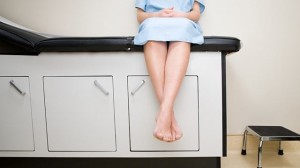FDA to Review Concerns on the Essure Sterilization Procedure
 After receiving thousands of complaints of adverse side-effects, the FDA has decided to conduct a hearing on the safety and effectiveness of Essure. The controversial sterilization implant involves pushing micro coils made of nitinol (a nickel-titanium alloy) and polyethylene terephthalate (PET) fibers into a woman’s fallopian tubes via a hysteroscope and catheter. This scars the fallopian tubes and seals them shut.
After receiving thousands of complaints of adverse side-effects, the FDA has decided to conduct a hearing on the safety and effectiveness of Essure. The controversial sterilization implant involves pushing micro coils made of nitinol (a nickel-titanium alloy) and polyethylene terephthalate (PET) fibers into a woman’s fallopian tubes via a hysteroscope and catheter. This scars the fallopian tubes and seals them shut.
Originally developed by Conceptus, the Essure system was approved by the FDA in 2002. Bayer HealthCare, a subgroup of Bayer AG and one of the largest pharmaceutical companies in the world, acquired Essure in 2013. Bayer AG reported a gross profit of almost EUR 22 billion in 2014.
Bayer claims Essure to be 99.83% effective in preventing pregnancy if placed correctly. Women who do become pregnant with the Essure implant, however, have a significantly higher risk of having an ectopic pregnancy. Ectopic pregnancies, where the fertilized egg implants outside of the womb, can be life-threatening.
Over the past 12 years, the FDA has received over 5,300 complaints from women using Essure. The reports include 482 cases of device migration, 259 cases of device breakage, and 133 malpositions. Other women reported suffering from abdominal pain (3,353 cases), menstrual irregularities (1,408 cases), and weight fluctuation (936 cases). Other victims reported experiencing debilitating sharp chronic pain or cramping, hair loss, chronic bloating, headaches, mood swings, dizziness, nausea, vomiting, chronic back pain, fibroids, painful intercourse, and perforated organs.
The manufacturer claims that local anesthesia is generally sufficient for the Essure procedure, but admits that some women may require general anesthesia. The device takes about three months to sterilize women. This occurs because the PET fibers inflame the surrounding tissue, and the resulting scar tissue effectively blocks the fallopian tubes, preventing both the sperm from entering and the egg, fertilized or not, from leaving. The nitinol coils are never removed and remain lodged in the patient’s body.
In a routine post-approval study of the device’s safety and efficacy conducted by Conceptus in 2002, a total of 9% of women experienced an adverse event associated with Essure during the Phase II study, with some 3% suffering the perforation of one or more organs. Subsequently, the FDA maintained “although there is evidence of complications, as there are with many medical devices, overall results from this study did not demonstrate any new safety problems or an increased incidence of problems since the time of device approval”.
An initial summary of the device’s safety also indicated that after one year, 9% of patients experienced back pain, 2.9% experienced severe menstrual cramps, 1.9% severe abnormal bleeding, 1.5% vaginal infection, and 1.3% bloating due to the device.
Complications such as severe fatigue, weight gain, and depression, although frequently reported to the FDA by Essure users, were strangely missing from the initial clinical or post-approval follow-up trial reports.
The FDA does concede that the long-term risks associated with Essure include:
Unintended pregnancy, including ectopic pregnancy, pelvic pain, migration of Essure inserts through the fallopian tubes into the lower abdomen and pelvis, perforation of the uterus or fallopian tubes, [and] rash and itching associated with possible nickel allergy.
Even more worrisome, four women and five unborn babies were reported to have died from complications involving the Essure implant.
The FDA plans to hold its hearing on the efficacy and safety of the Essure procedure and implant on September 24, 2015.
The clinical trials and adverse reports indicate health risks for too many women who are otherwise perfectly healthy prior to the procedure. The risks are not commensurate with the procedure’s effects.
The FDA years ago banned the dangerous Norplant implant after PRI blew the whistle on the device. Norplant had received some 6,000 adverse reports at the time. At the current rate, Essure is set to exceed that number by September. If it places the health and safety of women first and above all other interests, the FDA ought to ban Essure as well.
If you have personally suffered adverse side-effects due to the Essure implant, you can file an adverse report with the FDA online or by mail.

